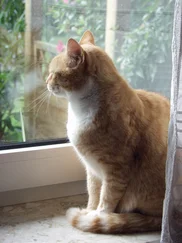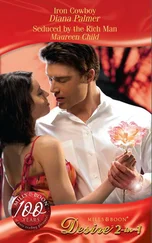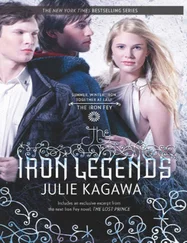Blood, sacred, abominated. And you, flesh of my flesh, blood of my blood, bleeding every month into foreign soil.
For twenty years I have not bled. The sickness that now eats at me is dry, bloodless, slow and cold, sent by Saturn. There is something about it that does not bear thinking of. To have fallen pregnant with these growths, these cold, obscene swellings; to have carried and carried this brood beyond any natural term, unable to bear them, unable to sate their hunger: children inside me eating more every day, not growing but bloating, toothed, clawed, forever cold and ravenous. Dry, dry: to feel them turning at night in my dry body, not stretching and kicking as a human child does but changing their angle, finding a new place to gnaw. Like insect-eggs laid in the body of a host, now grown to grubs and implacably eating their host away. My eggs, grown within me. Me, mine: words I shudder to write, yet true. My daughters death, sisters to you, my daughter life. How terrible when motherhood reaches a point of parodying itself! A crone crouched over a boy, her hands sticky with his blood: a vile image, as it comes up in me now. I have lived too long. Death by fire the only decent death left. To walk into the fire, to blaze like tow, to feel these secret sharers cringe and cry out too, at the last instant, in their harsh unused little voices; to burn and be gone, to be rid of, to leave, the world clean. Monstrous growths, misbirths: a sign that one is beyond one's term. This country too: time for fire, time for an end, time for what grows out of ash to grow.
'When the ambulance came I was so stiff that I had to be lifted to my feet. In detaching my sticky fingers from the gash I opened it again. 'He has lost a lot of blood,' I said. 'It's not serious,' said the ambulance-man curtly. He held the boy's eyelid open. 'Concussed,' he said. 'How did it happen?'
Bheki sat: on the bed, his trousers off, his hands in a basin of water; Florence knelt before him bandaging his leg.
'Why did you leave me alone to loot after him? Why didn't you stay and help?'
I sounded querulous, certainly, but for once was I not in the right?
'I do not want to be involved with the police,' said Florence.
'That is not the question. You leave me alone to take care of your son's friend. Why must I be the one to take care of him? He is nothing to me.'
'Where is he?' said Bheki.
'They took him to Woodstock Hospital. He is concussed.'
'What does it mean, concussed?'
'He is unconscious. He hit his head. Do you know why you crashed?'
'They pushed us,' he said.
'Yes, they pushed you. I saw it. You, are lucky to be alive, both of you. I am going to lay a complaint.'
A glance passed between Bheki and his mother. 'We do not want to be involved with the police,' Florence repeated. 'There is nothing you can, do against the police. ' Again a glance, as though checking she had her son's approval.
'If you don't complain, they will go on behaving as they like. Even if it gets you nowhere, you must stand up to them. I am not talking about the police only. I am talking about men in power. They must see you are not afraid. This is a serious matter. They could have killed you, Bheki. What have they got against you anyway? What have you and that: friend of yours been up to?'
Florence knotted the bandage around his leg and murmured something to him. He took, his hands out of the basin. There was a smell of antiseptic.
'Is it bad?' I said.
He held out his hands, palms upward. Blood continued to ooze from the raw flesh. Honourable wounds? Would these count on the roll as honourable wounds, wounds of war? Together we regarded the bleeding hands. I had the impression he was holding back tears. A child, no more than a child, playing on a bicycle.
'Your friend,' I said – 'Don't you think his parents should know?'
'I can phone,' said, Florence.
Florence telephoned. A long, loud conversation. ' Woodstock Hospital,' I heard.
Hours later there was a call, from a public telephone, a woman wanting Florence.
'He is not in the hospital,' Florence reported.
'Was that his mother?' I asked.
'His grannie.'
I telephoned Woodstock Hospital. 'You, won't have his name, he was unconscious when they took him,' I said.
'No record of such a patient,' said the man.
'He had a terrible gash across the forehead.'
'No record,' he repeated. I gave up.
'They work with the police,' said Bheki. 'They are all, the same, the ambulances, the doctors, the police.'
'That is nonsense,' I said.
'Nobody trusts the ambulance any more. They are always talking to the police on their radios.'
'Nonsense.'
He smiled a smile not without charm, relishing this chance to lecture me, to tell me about real life. I, the old woman who lived in a shoe, who had no children and didn't know what to do. 'It is true,' he said – 'listen and you will hear.'
'Why are the police after you?'
'They are not after me. They are after everybody. I have done nothing. But anybody they see they think should be in school, they try to get them. We do nothing, we just say we are not going to school. Now they are waging this terror against us. They are terrorists.'
'Why won't you go to school?'
'What is school for? It is to make us fit into the apartheid system.'
Shaking my head, I turned to Florence. There was a tight little smile on her lips which she did not bother to hide. Her son was winning hands down. 'Well, let him. 'I am too old For this,' I said to her. 'I can't believe you want your son out on the streets killing time till apartheid comes to an end. Apartheid is not going to die tomorrow or the next day. He is ruining his future. '
'What is more important, that apartheid must be destroyed or that I must go to school?' asked Bheki, challenging me, smelling victory.
'That is not the choice,' I answered wearily. But was I right? If that was not the choice, what was the choice? 'I will take you to Woodstock,' I offered. 'But then we must leave at once.'
When Florence saw Vercueil waiting, she bridled. But I insisted. 'He must come along in case I have trouble with the car,' I said.
So I drove them to Woodstock, Vercueil beside me smelling worse than ever, somehow smelling miserable too, Florence and Bheki silent in the back. The car struggled up the gentle slope to the hospital; for once I had the presence of mind to park pointing downhill.
'I tell you, there is no such person here,' said the man at the desk. 'If you don't believe me, go and look in the wards.'
Tired though I was, I trailed through the male wards behind Florence and Bheki. It was the hour of the siesta; doves were calling softly from the trees outside. We saw no black boys with bandaged heads, only old white men in pyjamas staring emptily at the ceiling while the radio played soothing music. My secret brothers, I thought: this is where I belong.
'If they didn't bring him here, where would they have taken, him?' I asked at the desk.
'Try Groote Schuur.'
The parking lot at Groote Schuur was full. For half an hour we sat at the gate with the engine idling, Florence and her son talking softly together, Vercueil blank-eyed, I yawning. Like a sleepy weekend in South Africa, I thought; like taking; the family for a drive. We could have played a word-game to pass the time, but what chance was there of enlisting those three? Word-games, from a past that I alone could look back to with nostalgia, when we of the middle classes, the comfortable classes, passed our Sundays roaming the countryside from beauty-spot to beauty-spot, bringing the afternoon to a close with tea and scones and strawberry jam and cream in a tea-room with a nice view, preferably westward over the sea.
A car came out, we went in. 'I'll stay here,' said Vercueil.
Читать дальше












